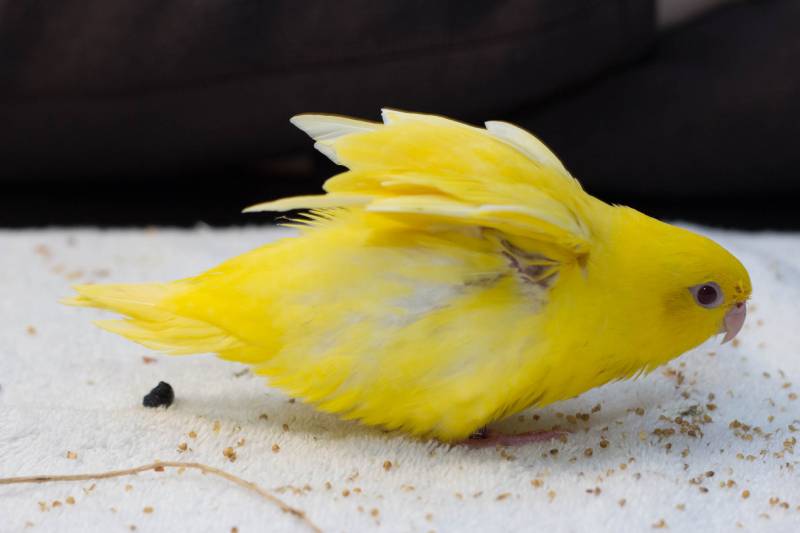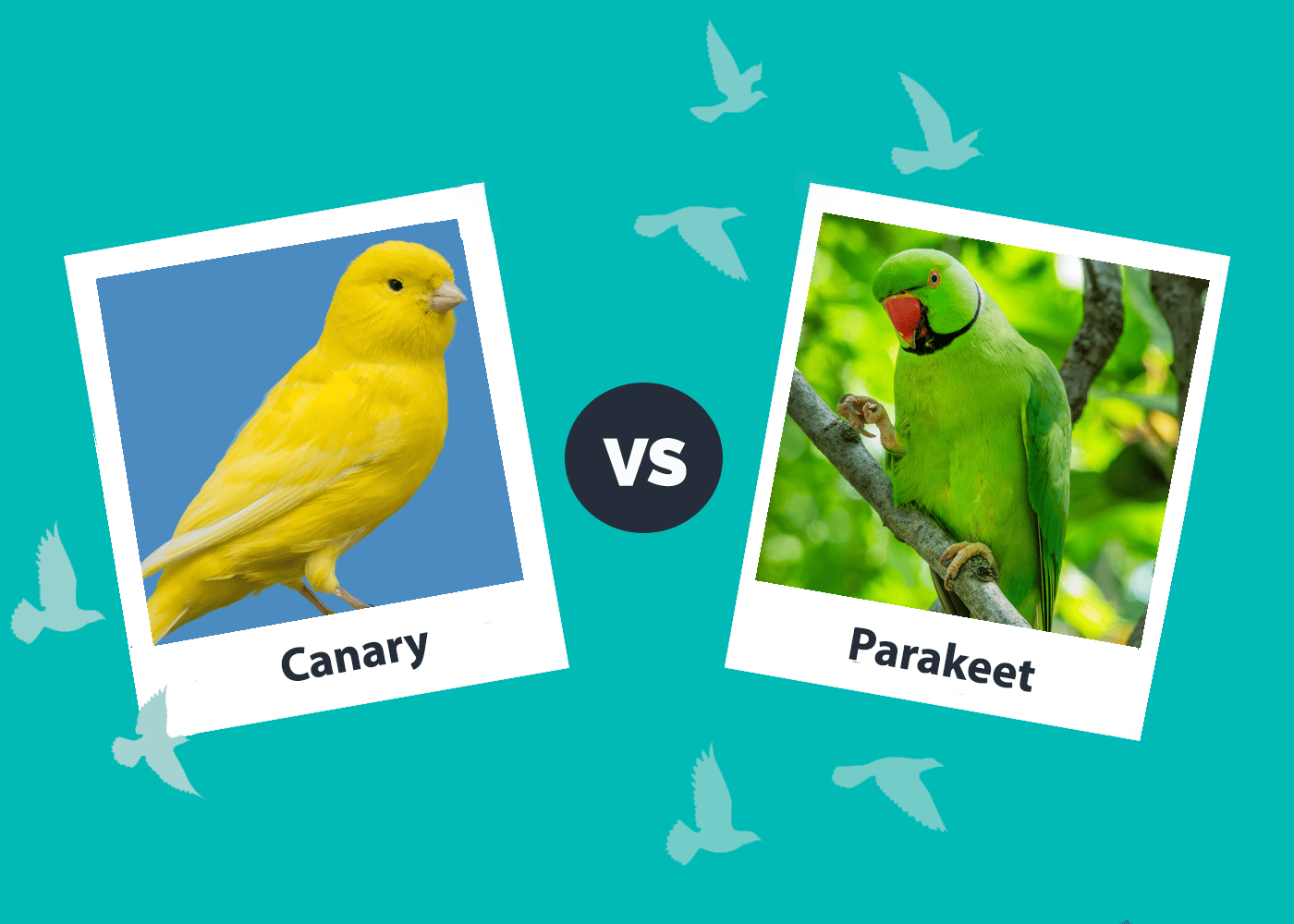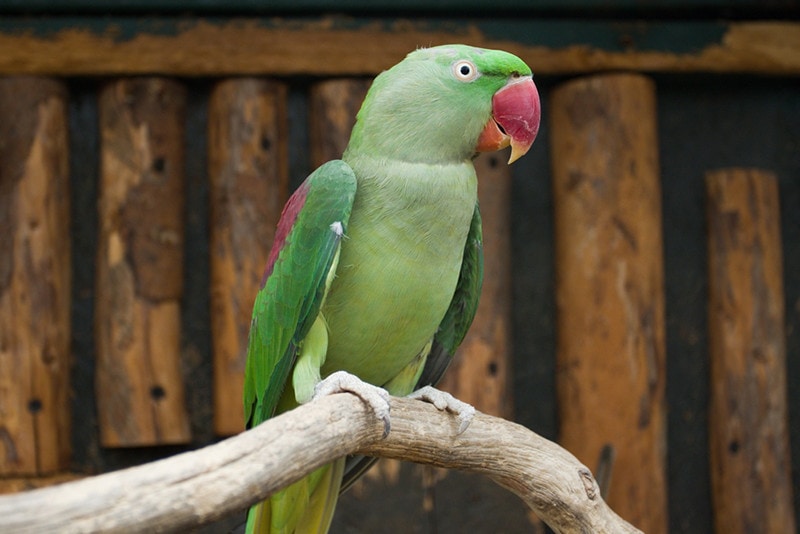Eclectus Parrot: Pictures, Info, Food & Care Guide
Updated on
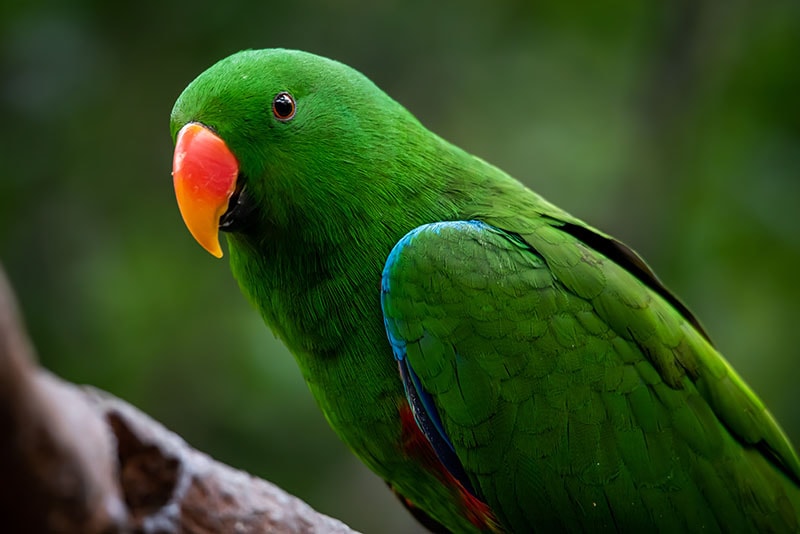
Click to Skip Ahead
The eclectus parrot (Eclectus roratus) are native to the forested areas of Indonesia, Papua New Guinea and Australia. They are striking birds, with the male and female looking quite different. You’d almost think they were two different species. Like many parrots, they are medium sized and relatively long-lived. They are also intelligent and require daily interaction for their mental well-being.
This species fares best with an experienced bird owner who has the time to interact with their pet. It’s also a financial investment, given their size. While friendly, these parrots may not enjoy petting as much as others of their kind. Nevertheless, they make delightful pets with the necessary care.
Species Overview
| Color: | Male: Mainly green with red wing coverts Female: Mainly red with a purple/blue breast and wing coverts |
| Weight: | 12.5–21.5 ounces |
| Size: | 13–16.5 inches |
| Wingspan: | 9–10 inches |
The eclectus parrot has a lot going for it. The bird is colorful with a charming personality. As many parrots do, they can learn to talk and interact with their owners. Their intelligence means enrichment is vital. An aviary is essential to give them plenty of room to fly and explore. They can be sensitive creatures, making positive reinforcement the best training method.
Eclectus Parrot Characteristics
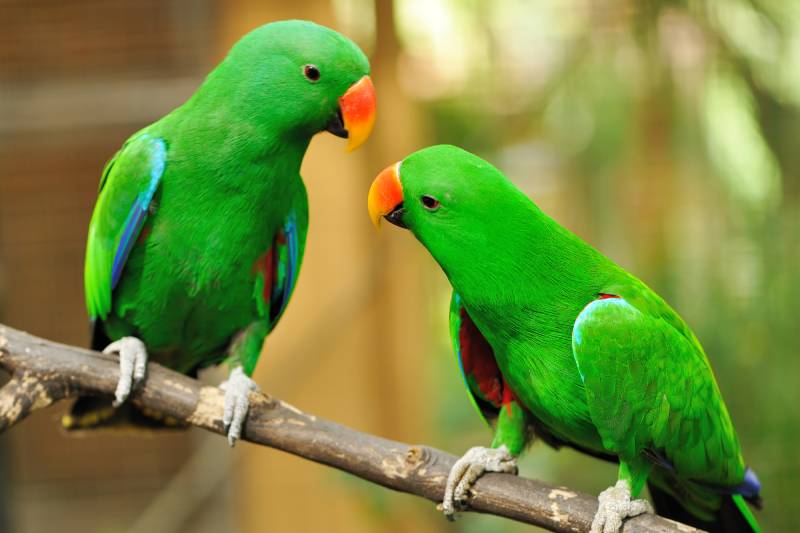
History and Natural Habitat
The eclectus parrot lives in the dense rainforests of their native land. Three subspecies of the eclectus or Moluccan parrot (Eclectus roratus) exist. It was first described in 1776. The sexual dimorphism or differences between the sexes confused ornithologists. While not unusual in the avian world, the extreme variations are unusual among parrots.
The International Union for Conservation of Nature (IUCN) lists the bird as a species of least concern, although their numbers are decreasing due to pressure from fires, habitat destruction and the wildlife trade.
Scientists surmise the female’s red coloration acts as signals for ownership of nest hollows, which are rare. That fact has directly influenced their mating, which is polygynandrous, meaning females and males have multiple partners.
Things to Know When Owning an Eclectus Parrot:
Temperament
The eclectus parrot is a sociable bird and readily forms flocks in the wild. They are active animals, spending much time foraging for food. They are also fast learners and will pick up the routine of the household quickly. That suits these birds since they prefer the status quo as opposed to an overly active home where things change frequently. They are often shy about accepting change and new things.
Nevertheless, the eclectus parrot makes an excellent pet. They generally breed in captivity well, and many available birds are hand fed and used to being handled to some degree. This species can be sensitive to punishment or harsh words, so it’s best to take a positive tone with any interactions to avoid stressing your pet.
Sounds, Speech & Vocalizations
Eclectus parrots are no different from others of their kind. They are loud when they want to be, which isn’t unusual for a bird that lives in rainforests. Hey, if you can’t be seen, at least you can be heard, right? They can also pick up words and accumulate a relatively large vocabulary. These birds can screech and make a unique honking sound among the repertoire of vocalizations.
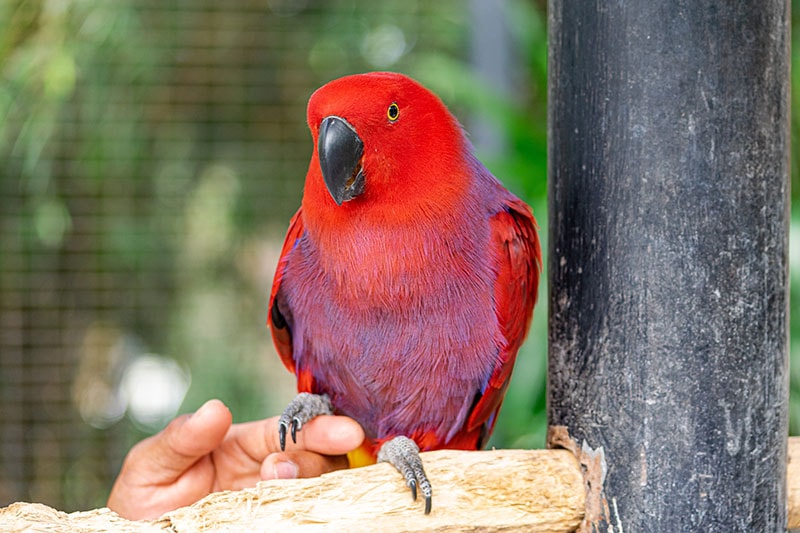
Eclectus Parrot Appearance
The varying coloration between the males and females is an adaptation to their environment and its resources. The availability of tree hollows is the limiting factor. The red coloration of the females helps the males spot potential mates in tree hollows, and females avoid occupied hollows. Whereas the male’s green gives them camouflage and allows them to gather food safely to feed the female and her chicks.
Caring for the Eclectus Parrot
Researching the care of a prospective pet is essential before committing to owning one. The eclectus parrot is no exception, given their intelligence and longevity. You can keep them alone or in pairs. Remember that single birds will require more attention and enrichment.
Diet & Nutrition
Eclectus parrots are naturally herbivores. They eat various flowers, buds, seeds, and nuts. They’ll also consume berries, fruit, and nectar. Pets must get adequate amounts of fruits and vegetables to fulfill their nutritional needs. You should also offer your avian companion a pelleted diet to round out their diet.
These parrots differ from other birds with their longer digestive tract. That means they should consume low-fat and high-fiber foods. They also need a lot of B-carotene in their diet due to higher than usual vitamin A requirements. They may also be more sensitive to colorants and preservatives in the diet.
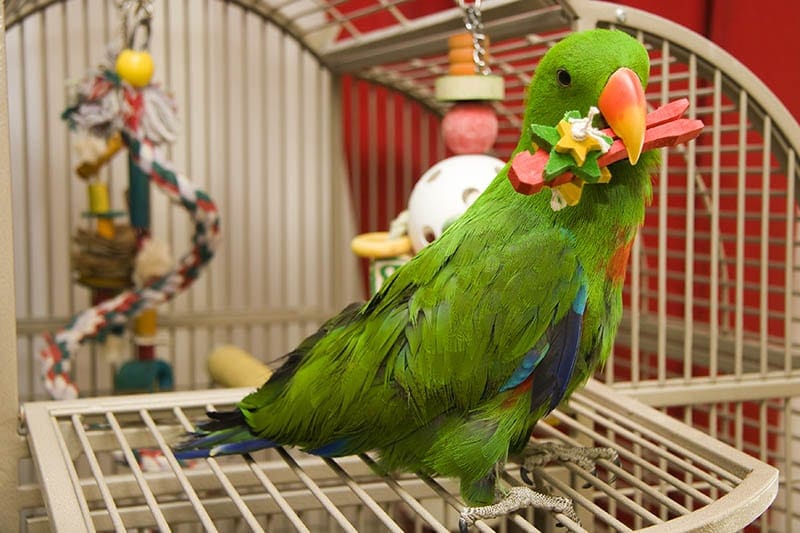
Cage/Housing Requirements
You should get the largest cage or aviary you can find to house your eclectus parrot, but 4 cubed feet is a minimum. These active birds need the space to spread their wings You should add several toys to keep your pet from getting bored. Interactive products are excellent choices for challenging your parrot mentally. You should also provide playtime outside the cage, whether on top of the cage or interacting with you.
We recommend supervising any playtime outside the cage. These parrots will chew whatever they can find, even if it’s dangerous or inappropriate. Keeping your pet on a regular schedule will ensure quiet times for the household.
Exercise
Preventing boredom is the main goal of exercise. These birds usually live in the canopies of the rainforests, where they have plenty of places to explore. They do a decent job of occupying themselves but don’t forget their need for social interaction. However, toys can ensure they stay active. You should give your bird chew toys to satisfy that need. Perches of varying diameters will help keep their feet healthy and avoid sore spots.

Health & Conditions
Feeding your eclectus parrot an appropriate diet goes a long way toward keeping them healthy. You should place their cage away from drafts and direct sunlight. Daily interaction is essential for your pet’s mental well-being. Minimizing stress is also vital. A regular routine will keep it to a minimum. Of course, annual exams are necessary for optimal health.
- Toe-tapping
- Feather plucking
- Psittacine beak and feather disease
- Hypovitaminosis A
- Avian polyomavirus
3 Little-Known Facts About the Eclectus Parrot
1. Eclectus Parrots Prefer Foods From the Pandanus and Parinarium Genera in Their Native Habitat
Both genera include tropical and subtropical trees with fruits, buds, and flowers these birds like.
2. Toe-Tapping in the Eclectus Parrot May Be Related to Dietary Inclusions
This condition in its true form seems to be dietary related, however, care needs to be taken to rule out other illnesses, including psychological problems.

3. Scientists Hypothesize That Eclectus Parrots Can Control the Sex of Their Offspring
Observational data suggests that eclectus parrots can control the sex of their offspring. It makes evolutionary sense, given the nesting pressure they face.
Conclusion
The eclectus parrot is a fascinating bird with many traits that set it apart from others of their kind. Their beauty alone is enough to consider having one as a pet. However, as with any parrot, it’s an investment in time and money to keep your bird mentally and physically healthy. Understanding this species’ unique requirements will ensure a good pet-owner relationship.
Featured Image Credit: Anish Daryani, Shutterstock



